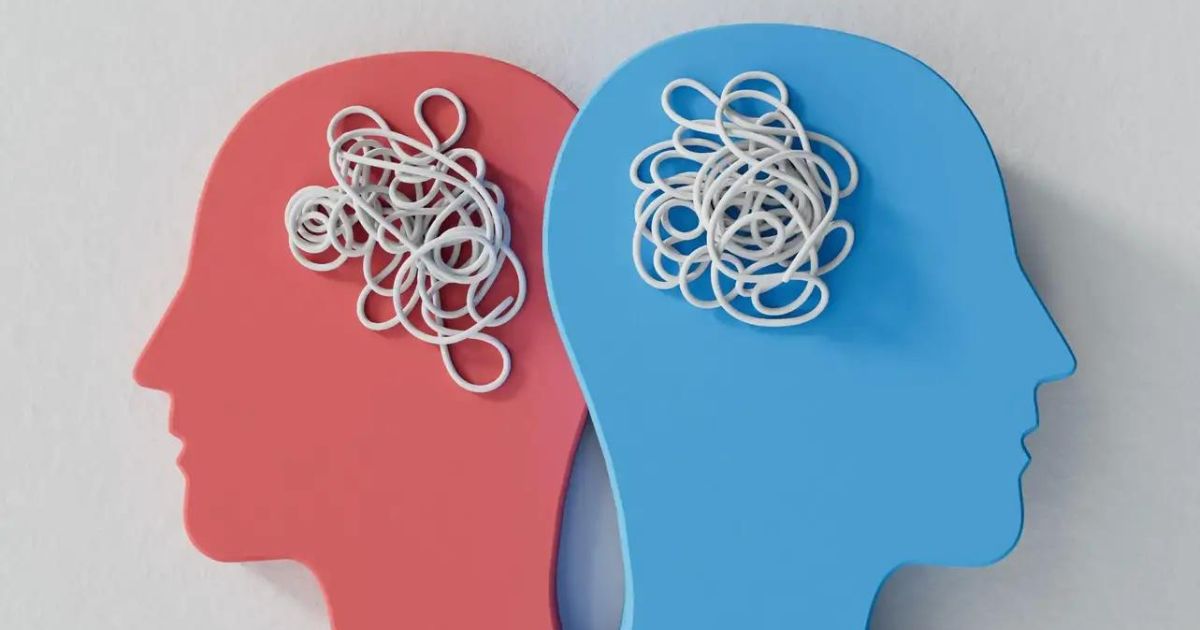In a groundbreaking study, researchers from the Weizmann Institute of Science have uncovered significant gender differences in stress and how male and female mice respond to stress at the cellular level.
This research not only deepens our understanding of the intricacies of stress but also highlights the importance of diversity in scientific research for more comprehensive insights and the development of personalized therapies.
The study, published in Cell Reports, sheds light on a subcategory of brain cells that react to stress differently in males and females.
These findings have far-reaching implications for the treatment and understanding of stress-related conditions, including anxiety, depression, obesity, and diabetes.
Moreover, they underscore the necessity of diversity not only in the scientific community but also in the design of experiments, particularly in the use of animal models.
Scientific Research For Gender Differences in Stress
Scientific excellence thrives on diversity. It encompasses not only gender diversity but also individuals from various backgrounds and perspectives. This principle extends to the design of scientific experiments.
Unfortunately, a significant portion of life science research relies heavily on male mice, potentially skewing results and limiting their applicability to human health.
Recognizing this challenge, researchers from Prof. Alon Chen’s joint laboratory at the Weizmann Institute and the Max Planck Institute of Psychiatry in Munich embarked on a study to address these gender-based differences in stress response.
The study employed advanced methods to analyze gene expression at the cellular level in the brains of male and female mice. This meticulous approach allowed researchers to uncover striking disparities in how specific brain cells respond to stress based on gender.
One of the key findings of the study was that a subcategory of brain cells exhibited entirely distinct reactions to stress in males and females.
This discovery has far-reaching implications for understanding and addressing chronic stress-related health conditions, such as anxiety, depression, obesity, and diabetes.
The revelations from this research hold the potential to revolutionize the way we approach stress-related disorders.
By gaining a more nuanced understanding of the cellular responses to stress in both genders, scientists are better equipped to develop personalized therapies tailored to an individual’s specific needs.
Anxiety and depression, for instance, affect millions of people worldwide. However, the effectiveness of treatments can vary significantly from one individual to another.
The insights gleaned from this study may pave the way for more targeted and effective interventions, improving the quality of life for those grappling with these conditions.
Furthermore, the implications of this research extend beyond mental health. Chronic stress is a known contributor to various physical health issues, including obesity and diabetes.
Understanding how different genders respond to stress at the cellular level may lead to innovative strategies for preventing and treating these conditions, ultimately benefiting public health.
This study serves as a poignant reminder of the need for diversity in scientific research. By including both male and female subjects in studies, researchers can uncover nuances and variations that might otherwise remain hidden.
These findings underscore the importance of comprehensive and inclusive scientific investigations, which can yield more accurate, applicable, and equitable results.
Moreover, the study highlights the importance of inclusivity in the scientific community. Diverse perspectives and backgrounds among researchers can lead to novel approaches, innovative questions, and a deeper understanding of complex phenomena, such as stress.
The research conducted by the Weizmann Institute of Science offers a fascinating glimpse into the intricate world of stress responses in the brain, showcasing gender-based disparities that were previously unknown.
These findings hold tremendous promise for advancing our understanding and treatment of stress-related conditions, with potential implications for anxiety, depression, obesity, and diabetes.
Furthermore, the study underscores the essential role of diversity in scientific research, from the design of experiments to the composition of research teams.
By embracing diversity and inclusivity, the scientific community can unlock new frontiers of knowledge, leading to more effective treatments and a brighter future for those affected by stress-related disorders.

